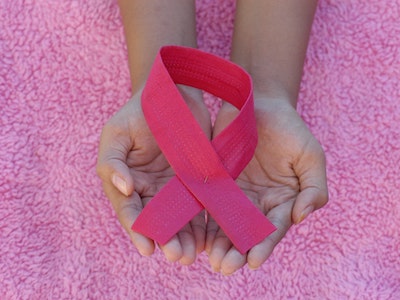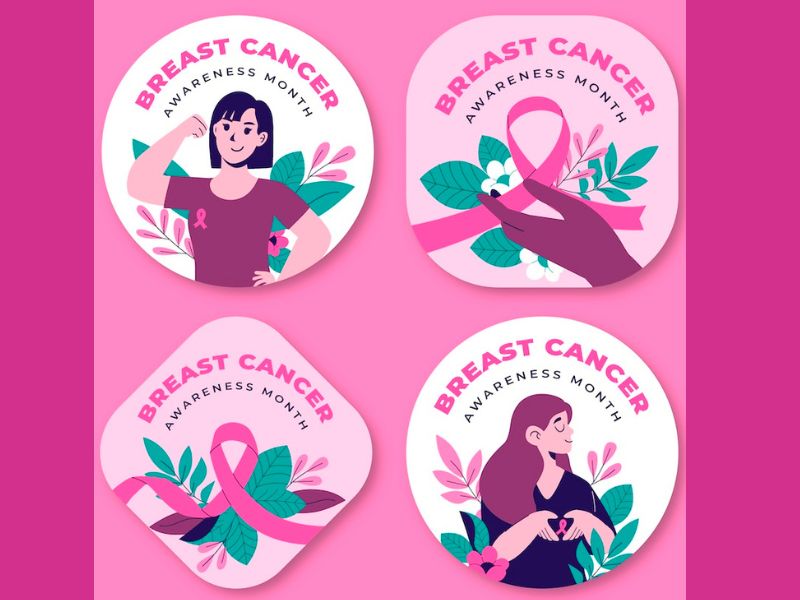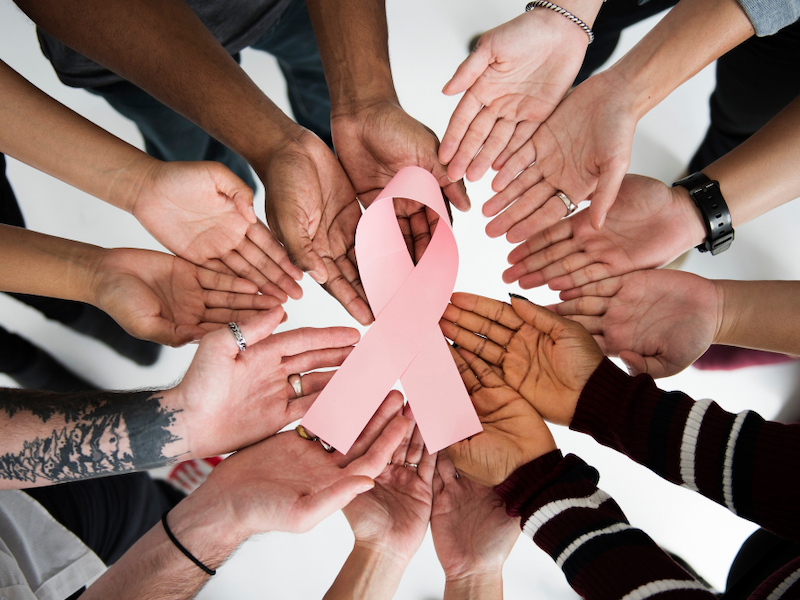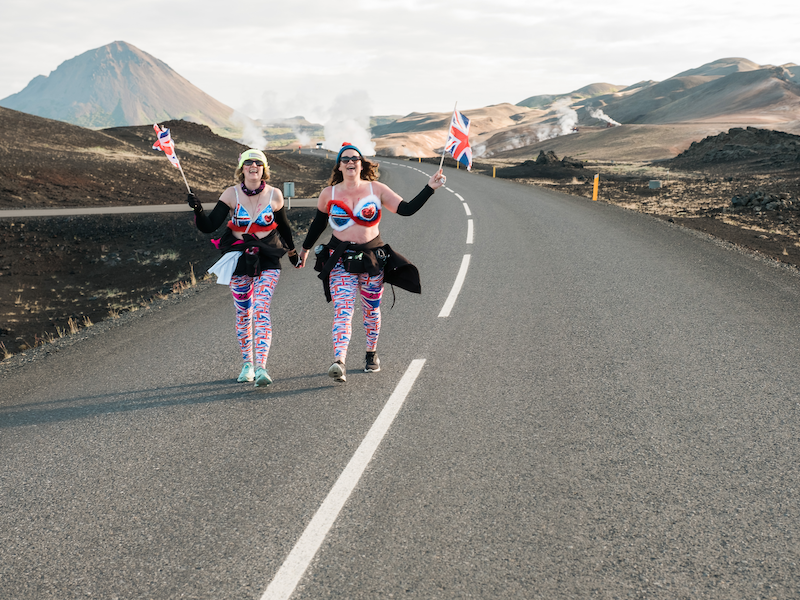October is Breast Cancer Awareness Month and to commemorate it, WeAreTheCity will be profiling a variety of different women who all carry the BRCA1 or 2 gene mutation.
These mutations give the carrier a 75 per cent chance of developing breast or ovarian cancers. It is a hereditary gene, which can be passed down through the male line, as well as the female.
Angelina Jolie famously had this surgery a couple of years ago but the National Hereditary Breast Cancer Helpline say that the message still hasn’t really filtered down to the public yet.
One in 200 people carry a fault in a high risk gene that predisposes them to an increased risk of developing breast, ovarian or prostate cancer.
The hope from these articles is to give a spotlight to these incredible women and to raise awareness of the BRCA gene mutations.
Helen Smith, 52, from Leigh on Sea, Essex is married and a twin.
Helen has four children and two grandchildren. She is one of six children – three carrying the faulty BRCA 1 gene and three who do not.
Helen has a family history of the BRCA gene, along with genetic breast cancer, with four family members being diagnosed with breast cancer – two with the BRCA 1 gene and two without.
Helen had a preventative double mastectomy in November 2009, due to 85 percent chance of breast cancer. She also had a full hysterectomy in November 2015, due to 60 per cent chance of ovarian cancer.
How did you find out that you had the BRCA gene?
We were informed of the gene fault through a cousin in Holland, who had breast cancer about 12 + years ago and routinely they tested her and her dad (my mum’s brother) for the BRCA fault. They both had BRCA 1 gene fault.
We were then sent a letter to inform us of the results and it was suggested we ask for genetic testing. I went to my local GP who’d never heard of BRCA 1, so he just suggested a routine blood test just to test for any cancer.
This was done and came back clear.
It was not until three years later, that my sister was diagnosed with breast cancer and her local hospital suggested a genetic counsellor to talk us all through the prospect of being tested for the faulty BRCA gene. My mum carried the gene fault along with my two brothers.
In November 2007, I tested positive for BRCA 1.
How have you coped with the challenges that you’ve faced since?
In the beginning, it was extremely hard to know that I had an 85 percent chance of breast cancer and to be honest, nursing my sister through breast cancer surgery and chemotherapy was hard to watch.
I knew I was not as brave as her, so it was a no brainer to have preventative surgery. I was a nightmare to live with and my everyday was consumed with worrying about getting breast cancer.
It wasn’t until my surgery in November 2009 that I felt a weight had been lifted and I could start living again – in fact, I felt empowered that I could take control of my life.
I have since gained new family in my BRCA sisters, who I have met on my journey and some of them I go on holiday with once, maybe twice a year.
I’ve raised awareness through taking part in a calendar, fashion show and having my topless portrait exhibited along with 49 other women in the House of Commons to show others how good you can look after preventative and breast cancer mastectomy.
I had my story, along with others, told by a Japanese company, who took interest in the NHBCH (National Hereditary Breast Cancer Helpline) calendar. I have also helped raise funds by doing a skydive and holding the first NHBC Helpline Ball in Essex.
Although a negative, I feel that finding out that I carried the BRCA 1 gene has been a positive experience on my life and I would not have done all the things I have done since my surgery.
It truly has been an empowering experience.
What support have you received? Do you have a strong support network of friends, family etc. or have you been supported by other networks?
I initially didn’t receive much support from the NHS and any research I did myself.
I eventually found Wendy Watson, after a talk she did at Broomfield Hospital, Chelmsford. It was Wendy and her helpline that saved me. Along with my family and friends, I class Wendy and Becky as family.
My BRCA sisters are a lifeline and we regularly keep in touch or meet up at weekends away or birthdays, despite being based in different parts of the UK.
I am also a supporter of the charity, Keeping Abreast, based in Norwich, who help women with their surgeries and finding surgeons, along with help groups.
How did you become involved with the campaign for Breast Cancer Awareness Month?
I became involved after seeing an advert on NHBCH Helpline, about Anita Underwear, who were doing a journal in Austria for three days to raise awareness – I forwarded them my story.
Twelve people were to be chosen based on their story, but I believe it was so difficult to choose that they chose by drawing names from a hat in the end. I was one of the lucky ones!
Angelina Jolie famously had risk-reducing surgery – how important was it that she told the world?
It was very important, as it not only raised awareness, but also highlighted that anyone could be affected. Obviously being famous was a great platform to get BRCA out into the public domain.
How important is it for people to see women who’ve had mastectomies in the public domain?
Essential! At the time when I was looking for preventative surgeries there was very little on the internet, so I was at a loss as to what different surgeries were out there, and that left me feeling alone and scared.
Seeing others’ surgeries prepares you for both the good and bad.
Knowledge is power.
What do you hope to achieve from the campaign?
To raise awareness that prevention has to be a good thing and that it can save lives of future generations to come.
I would also hope that it raises awareness that men too can carry the faulty gene and can pass it down without knowing.
It could also possibly raise awareness by hopefully stopping the BRCA gene in families through parents, who actually know they carry the faulty gene and who want to have families of their own, having embryo selection to eradicate the faulty gene.
What else do you think could be done to raise awareness of the BRCA genes? Should the government/NHS be doing more?
I think more leaflets in hospitals and GP surgeries would be a great start.
Also, education within high schools and colleges, through the Health and Social Care curriculum.
The Government and the NHS should be doing a lot more with regards to funding for preventing breast, ovarian and prostate cancer. This has to be more cost effective than surgery, chemo and radiotherapy.
No one should have to watch a loved one go through the trauma or lose someone because of cancer, especially if there is a test that can be given to everyone that can prevent it!
How can other people worried about the BRCA genes get the help and support they need?
The best resources out there now are on the Internet! Some hospitals have information, such as around help groups etc.
But I also think that word of mouth is useful – just by mentioning to others what you have gone through raises awareness in itself. I have had quite a few friends, ask if friends of friends can get in touch with me because they are worried about their history or need information on who to contact because of breast cancer in their families.
All it needs is one person to point them in the right direction.
Do you have any advice for anyone going through a similar thing?
I would say that initially it feels like your world has fallen apart and you are just waiting for the ‘Big C’ to strike. You feel alone and scared, but know that there are helplines – or lifelines as I call them -out there to help you through this.
There is light at the end of the tunnel. It may seem to take forever but there is light.
Everyone’s experience is individual to them and no two surgeries are ever the same. At the end of the day, you have to put into perspective why you had the surgery and if it saves you from breast/ovarian Cancer, then that has to be the best decision for you. If you choose to do surveillance, then that also is the best decision for you.
Always feel comfortable with your surgeon – ask as many questions as you can and if you’re not happy with advice given, get a second opinion. My first surgeon at Southend Essex Hospital said I was asking too many questions about preventative surgery. He was obviously the wrong surgeon for me, hence finding my right surgeon in Manchester.
Not many people know that you can have your surgery anywhere in the country, so do your research and if you can’t find the answer, you need contact Wendy Watson at the NHBC helpline.
Anita Care have sponsored the National Hereditary Breast Cancer helpline to produce a journal featuring twelve real women who have had risk reducing mastectomies. The journal will be on sale from 1 October 2017, priced at £9.99 with all proceeds going to the helpline.
You can purchase the journal here.









